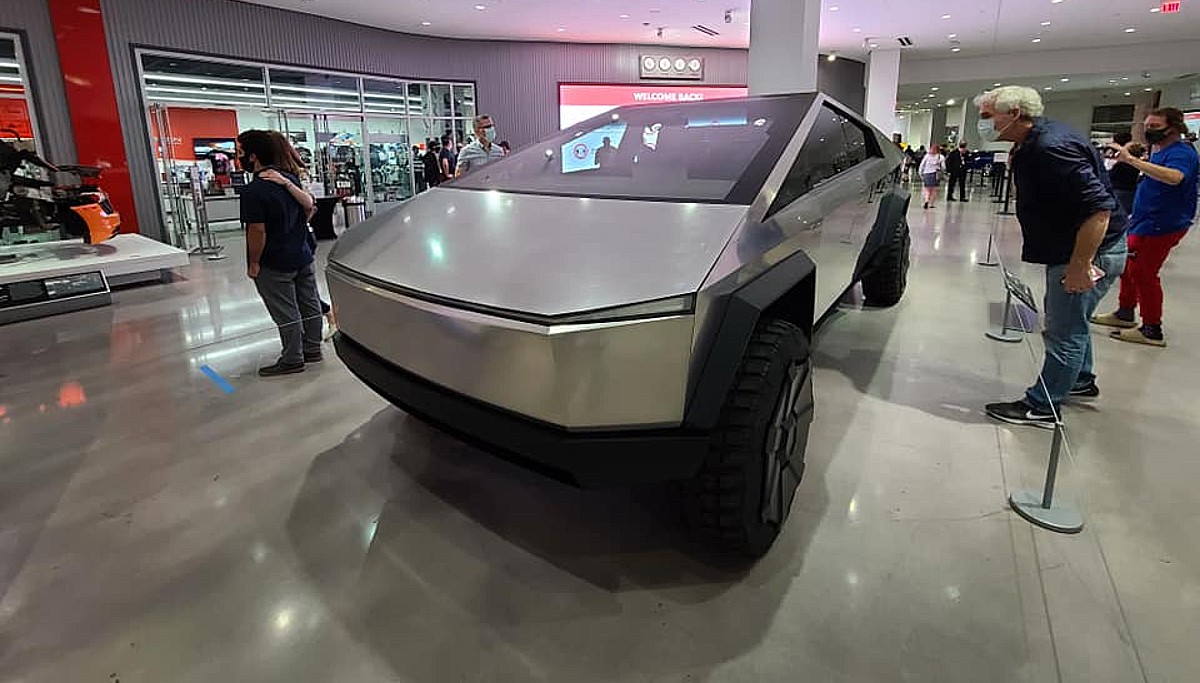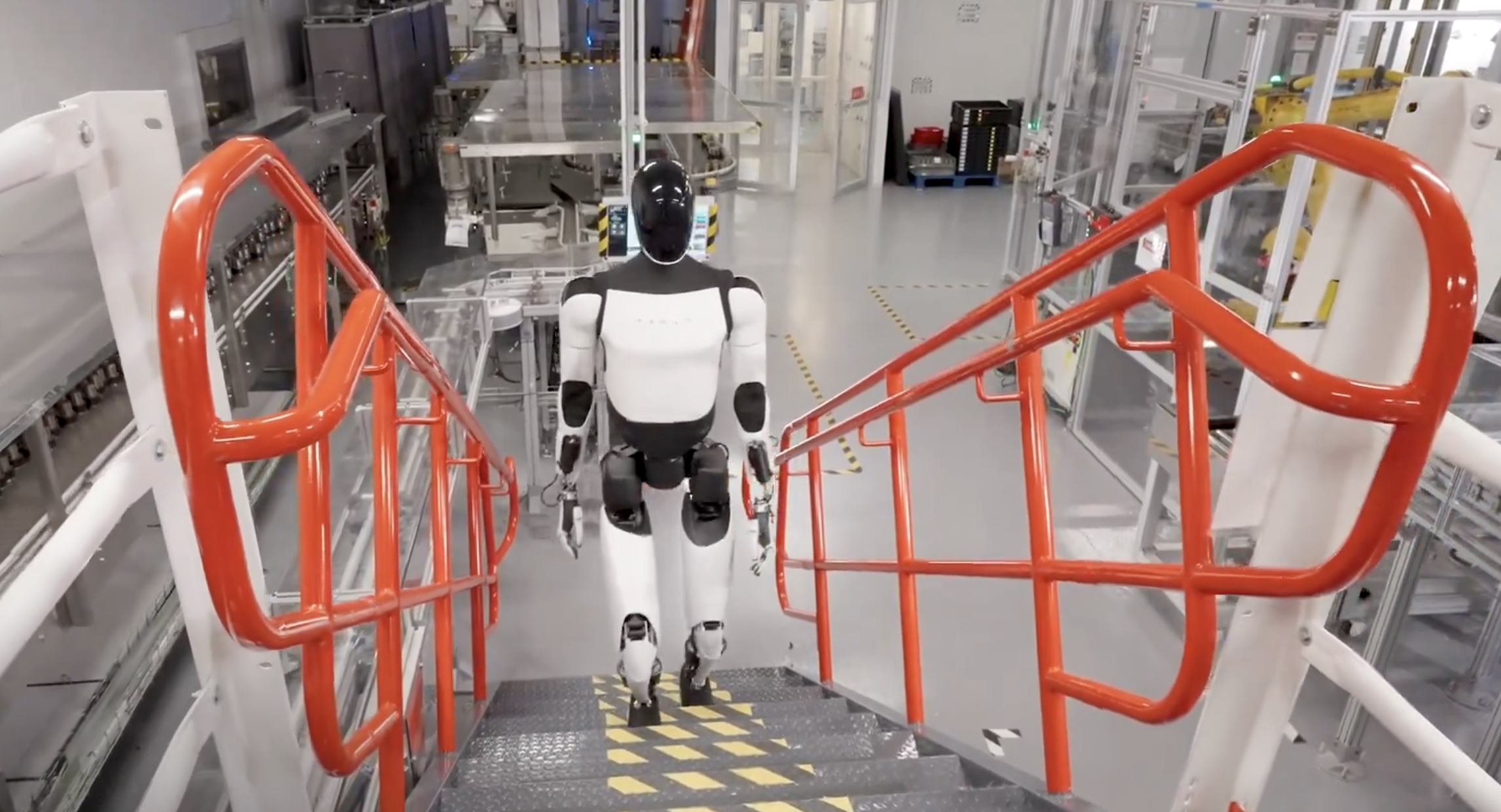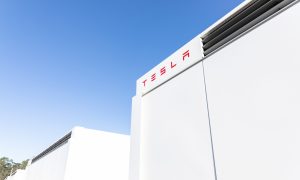

Investor's Corner
Tesla’s Elon Musk opens up about Giga-Texas selection, possible 3rd US factory
Tesla CEO Elon Musk opened up about his company’s decision to bring its next North American production facility to Austin, Texas, and also shared his thoughts on a third United States factory within the next few years.
Musk joined Jason Stein for the second part of the Automotive News podcast, where the CEO detailed the strong interest of his employees for an Austin Cybertruck factory over other Texas cities.
Before deciding on where Tesla would begin building its second U.S. production facility, Musk says that he had a sitdown with key members of the electric automaker’s team. Some members of Tesla’s management would have to move to Texas to oversee some of the company’s actions in the Lone Star State, and Musk wanted to make sure that those individuals were comfortable with where they would be moving to.
“When talking to key members of the team that would need to move to Austin from California in order to get the factory going, Austin was their top pick to be totally frank,” Musk said. “That was a big factor in choosing Texas and Austin. Specifically Austin. I guess a lot of people from California if you ask them what’s the one place you’d move outside of California, it’s Austin.”
Tesla was conflicted between some Texas cities, like Dallas, as well as Tulsa, Oklahoma, for the home of its next Gigafactory production facility. However, company executives were undoubtedly more prone to Austin, which could have ultimately led to the company choosing that location.
“That was a big factor, you know? Where do you want to spend time? And, where would you potentially move? Austin was just the number one choice,” Musk explained.
Musk personally announced the company’s intentions to build a new production facility in Austin during the company’s Q2 Earnings Call on July 22.
Although Tesla cannot directly sell to consumers in Texas due to current laws, it is the company’s second-biggest market, Musk said. Its centrally-located position in the U.S. was another reason Tesla chose to extend its hand to Austin. Not only would it make more sense economically to place a factory closer to the East Coast, but it also takes some stress away from the environment during the logistics process.
Musk indicated that transporting cars to East Coast-located buyers was not economical, nor was it good for the environment. These two factors, along with an increase in demand, could segway Tesla straight into a third U.S. factory.
The demand for Tesla’s electric vehicles continues to skyrocket, and there is the possibility that the company could end up building a third plant that could be located in the U.S. to take care of those needs.
Stein asked, “Do you think there could be additional areas of the U.S. that you’d consider for manufacturing beyond this?”
“I think at some point, there will be a third Gigafactory [in the U.S.],” Musk explained. “I’d imagine, you know, closer up North, Northeast, most likely.”
The Tesla CEO also indicated that the next facility could come in “four-ish” years as a rough estimate.
Tesla’s ultimate decision to create a manufacturing facility in Austin will cut down on the logistics timeline the company maintains for delivering its vehicles. East Coast customers will undoubtedly experience more efficient delivery timelines as the company will not be transporting cars from its Fremont factory in Northern California to various states in the Eastern half of the country.
Giga, Texas will produce the Model Y, Model 3, Semi, and Cybertruck.
The second part of Musk’s interview with Automotive News is available in its entirety here.
Investor's Corner
Tesla could save $2.5B by replacing 10% of staff with Optimus: Morgan Stanley
Jonas assigned each robot a net present value (NPV) of $200,000.

Tesla’s (NASDAQ:TSLA) near-term outlook may be clouded by political controversies and regulatory headwinds, but Morgan Stanley analyst Adam Jonas sees a glimmer of opportunity for the electric vehicle maker.
In a new note, the Morgan Stanley analyst estimated that Tesla could save $2.5 billion by replacing just 10% of its workforce with its Optimus robots, assigning each robot a net present value (NPV) of $200,000.
Morgan Stanley highlights Optimus’ savings potential
Jonas highlighted the potential savings on Tesla’s workforce of 125,665 employees in his note, suggesting that the utilization of Optimus robots could significantly reduce labor costs. The analyst’s note arrived shortly after Tesla reported Q2 2025 deliveries of 384,122 vehicles, which came close to Morgan Stanley’s estimate and slightly under the consensus of 385,086.
“Tesla has 125,665 employees worldwide (year-end 2024). On our calculations, a 10% substitution to humanoid at approximately ($200k NPV/humanoid) could be worth approximately $2.5bn,” Jonas wrote, as noted by Street Insider.
Jonas also issued some caution on Tesla Energy, whose battery storage deployments were flat year over year at 9.6 GWh. Morgan Stanley had expected Tesla Energy to post battery storage deployments of 14 GWh in the second quarter.
Musk’s political ambitions
The backdrop to Jonas’ note included Elon Musk’s involvement in U.S. politics. The Tesla CEO recently floated the idea of launching a new political party, following a poll on X that showed support for the idea. Though a widely circulated FEC filing was labeled false by Musk, the CEO does seem intent on establishing a third political party in the United States.
Jonas cautioned that Musk’s political efforts could divert attention and resources from Tesla’s core operations, adding near-term pressure on TSLA stock. “We believe investors should be prepared for further devotion of resources (financial, time/attention) in the direction of Mr. Musk’s political priorities which may add further near-term pressure to TSLA shares,” Jonas stated.
Investor's Corner
Two Tesla bulls share differing insights on Elon Musk, the Board, and politics
Two noted Tesla bulls have shared differing views on the recent activities of CEO Elon Musk and the company’s leadership.

Two noted Tesla (NASDAQ:TSLA) bulls have shared differing views on the recent activities of CEO Elon Musk and the company’s leadership.
While Wedbush analyst Dan Ives called on Tesla’s board to take concrete steps to ensure Musk remains focused on the EV maker, longtime Tesla supporter Cathie Wood of Ark Invest reaffirmed her confidence in the CEO and the company’s leadership.
Ives warns of distraction risk amid crucial growth phase
In a recent note, Ives stated that Tesla is at a critical point in its history, as the company is transitioning from an EV maker towards an entity that is more focused on autonomous driving and robotics. He then noted that the Board of Directors should “act now” and establish formal boundaries around Musk’s political activities, which could be a headwind on TSLA stock.
Ives laid out a three-point plan that he believes could ensure that the electric vehicle maker is led with proper leadership until the end of the decade. First off, the analyst noted that a new “incentive-driven pay package for Musk as CEO that increases his ownership of Tesla up to ~25% voting power” is necessary. He also stated that the Board should establish clear guidelines for how much time Musk must devote to Tesla operations in order to receive his compensation, and a dedicated oversight committee must be formed to monitor the CEO’s political activities.
Ives, however, highlighted that Tesla should move forward with Musk at its helm. “We urge the Board to act now and move the Tesla story forward with Musk as CEO,” he wrote, reiterating its Outperform rating on Tesla stock and $500 per share price target.
Tesla CEO Elon Musk has responded to Ives’ suggestions with a brief comment on X. “Shut up, Dan,” Musk wrote.
Cathie Wood reiterates trust in Musk and Tesla board
Meanwhile, Ark Investment Management founder Cathie Wood expressed little concern over Musk’s latest controversies. In an interview with Bloomberg Television, Wood said, “We do trust the board and the board’s instincts here and we stay out of politics.” She also noted that Ark has navigated Musk-related headlines since it first invested in Tesla.
Wood also pointed to Musk’s recent move to oversee Tesla’s sales operations in the U.S. and Europe as evidence of his renewed focus in the electric vehicle maker. “When he puts his mind on something, he usually gets the job done,” she said. “So I think he’s much less distracted now than he was, let’s say, in the White House 24/7,” she said.
TSLA stock is down roughly 25% year-to-date but has gained about 19% over the past 12 months, as noted in a StocksTwits report.
Investor's Corner
Cantor Fitzgerald maintains Tesla (TSLA) ‘Overweight’ rating amid Q2 2025 deliveries
Cantor Fitzgerald is holding firm on its bullish stance for the electric vehicle maker.

Cantor Fitzgerald is holding firm on its bullish stance for Tesla (NASDAQ: TSLA), reiterating its “Overweight” rating and $355 price target amidst the company’s release of its Q2 2025 vehicle delivery and production report.
Tesla delivered 384,122 vehicles in Q2 2025, falling below last year’s Q2 figure of 443,956 units. Despite softer demand in some countries in Europe and ongoing controversies surrounding CEO Elon Musk, the firm maintained its view that Tesla is a long-term growth story in the EV sector.
Tesla’s Q2 results
Among the 384,122 vehicles that Tesla delivered in the second quarter, 373,728 were Model 3 and Model Y. The remaining 10,394 units were attributed to the Model S, Model X, and Cybertruck. Production was largely flat year-over-year at 410,244 units.
In the energy division, Tesla deployed 9.6 GWh of energy storage in Q2, which was above last year’s 9.4 GWh. Overall, Tesla continues to hold a strong position with $95.7 billion in trailing twelve-month revenue and a 17.7% gross margin, as noted in a report from Investing.com.
Tesla’s stock is still volatile
Tesla’s market cap fell to $941 billion on Monday amid volatility that was likely caused in no small part by CEO Elon Musk’s political posts on X over the weekend. Musk has announced that he is forming the America Party to serve as a third option for voters in the United States, a decision that has earned the ire of U.S. President Donald Trump.
Despite Musk’s controversial nature, some analysts remain bullish on TSLA stock. Apart from Cantor Fitzgerald, Canaccord Genuity also reiterated its “Buy” rating on Tesla shares, with the firm highlighting the company’s positive Q2 vehicle deliveries, which exceeded its expectations by 24,000 units. Cannacord also noted that Tesla remains strong in several markets despite its year-over-year decline in deliveries.
-

 Elon Musk2 weeks ago
Elon Musk2 weeks agoTesla investors will be shocked by Jim Cramer’s latest assessment
-

 News2 days ago
News2 days agoTesla debuts hands-free Grok AI with update 2025.26: What you need to know
-

 Elon Musk4 days ago
Elon Musk4 days agoxAI launches Grok 4 with new $300/month SuperGrok Heavy subscription
-

 Elon Musk6 days ago
Elon Musk6 days agoElon Musk confirms Grok 4 launch on July 9 with livestream event
-

 News1 week ago
News1 week agoTesla Model 3 ranks as the safest new car in Europe for 2025, per Euro NCAP tests
-

 Elon Musk2 weeks ago
Elon Musk2 weeks agoxAI’s Memphis data center receives air permit despite community criticism
-

 News4 days ago
News4 days agoTesla begins Robotaxi certification push in Arizona: report
-

 Elon Musk2 weeks ago
Elon Musk2 weeks agoTesla scrambles after Musk sidekick exit, CEO takes over sales














